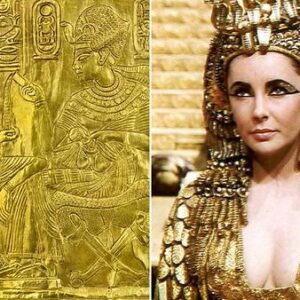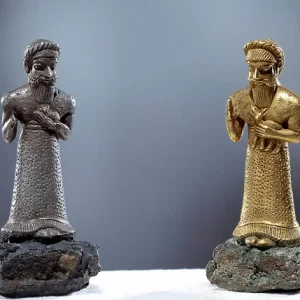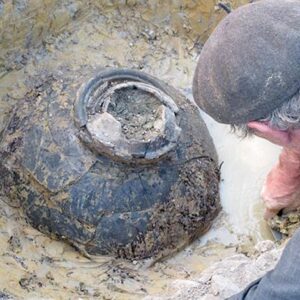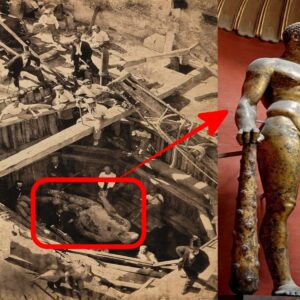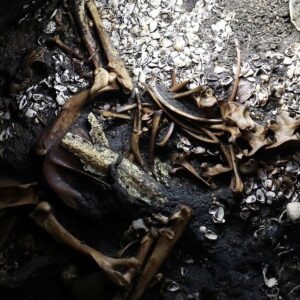Egypt renovates monuments in Luxor to invigorate city’s charm
Modern construction miracle
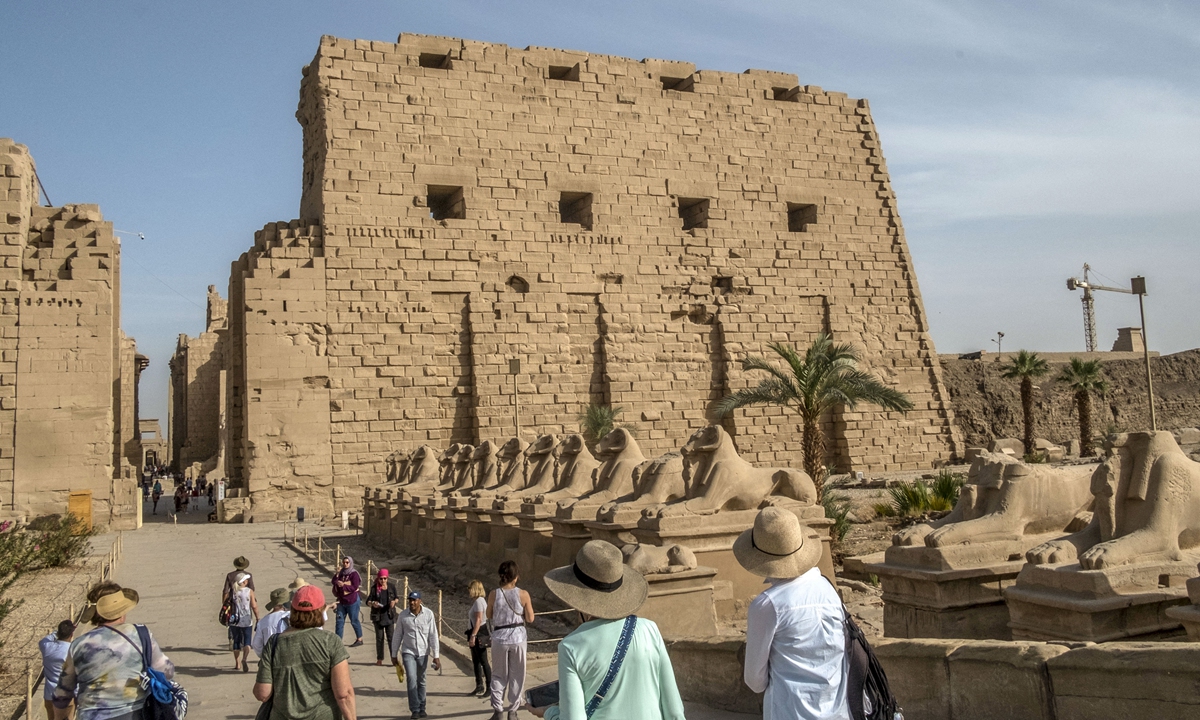
Tourists visit the Karnak Temple Complex in Egypt’s southern city of Luxor on March 10, 2020. Photo: AFP
Egyptian Prime Minister Mostafa Madbouly paid a visit on Wednesday to the country’s monument-rich city of Luxor and inspected the renovation work on some huge columns in the Karnak Temple Complex as part of a campaign launched by the government to rejuvenate the charm of the city ahead of its national day in early November.
Accompanied by a number of officials including the tourism and antiquities minister and the governor of Luxor, the prime minister saw dozens of specialized restorers standing on scaffolds while working on cleaning and restoring the original colors of 12 columns out of the 134 columns of the Great Hypostyle Hall inside the temple complex.
“I am here for monitoring all the progress and the effort that are being undertaken by the governorate and the Ministry of Tourism and Antiquities for the revival and renovation of different monuments and sites in Luxor,” the Egyptian prime minister told reporters.
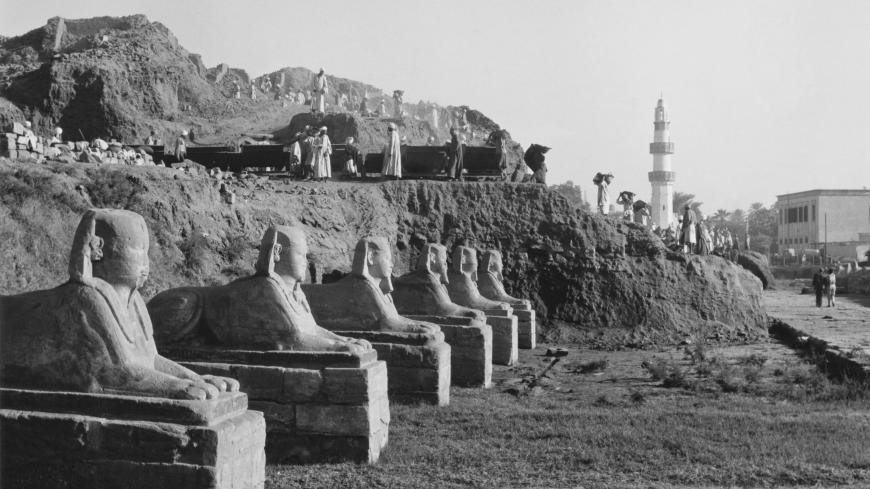
He added that the ongoing renovations of sites in Luxor, including the Karnak Temple Complex, Luxor Temple and the Avenue of Sphinxes stretching between them, will be celebrated in “another international event” like when Egypt celebrated in April relocating 22 mummies from a museum to another in Cairo in a remarkable event referred to as the Pharaohs’ Golden Parade.
Mostafa al-Saghir, director-general of Karnak temples, said that the Great Hypostyle Hall with its 134 columns in Karnak is admired and visited by a majority of local and foreign tourists.
“We are currently doing the restoration work to show their original colors, which are so beautiful and amazing. All this comes within the preparation of Karnak temples and Luxor Temple for the planned opening of the Grand Avenue of Sphinxes,” the official told the Xinhua News Agency inside the massive hall.
Saghir added that the Great Hypostyle Hall is “a construction miracle” in the New Kingdom of ancient Egypt, stressing that “while the Pyramids of Giza are the construction miracle of the Old Kingdom, the Great Hypostyle Hall is the construction miracle of the New Kingdom.”
Dressed in a white coat like her colleagues, Israa Hussein, a young woman, was standing on one of the scaffolds while using special tools and brushes to clean part of one of the columns and highlight its original colors.
“We try to revive the spirit of the columns. It’s an honor to work in this project in our city that contains a large amount of the world’s antiquities, and we’re happy that we highlight something valuable whose details and features used to be obscure,” she told Xinhua.
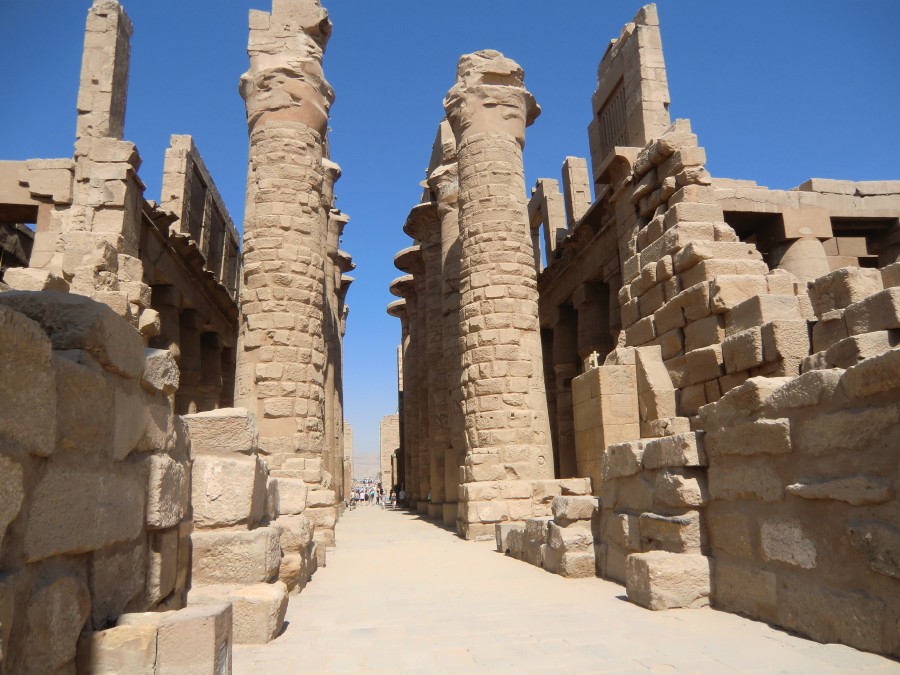
The restorers working on the temples in Luxor are mostly from the Supreme Council of Antiquities (SCA) and they came from different Upper Egyptian provinces including Luxor and Sohag, according to SCA Secretary-General Mostafa Waziri.
The Avenue of Sphinxes is 2,700 meters long, connecting between the temples of Karnak and Luxor Temple, said Waziri, noting that excavation work in the avenue, which started in 2017, led to the discovery of new sphinxes in the place.
The SCA chief said that excavation in the avenue will continue even after its opening for visitors in a few months, describing the monument-rich city of Luxor as “an open-air museum.”
The delegation of officials also took a quick look at Luxor Temple and the adjacent Avenue of Sphinxes before they concluded the inspection tour.
